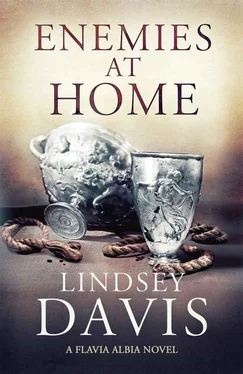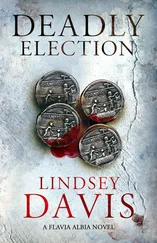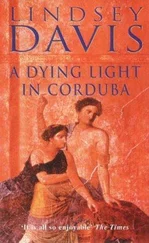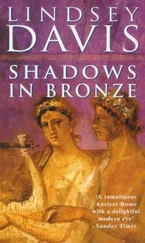Lindsey Davis - Enemies at Home
Здесь есть возможность читать онлайн «Lindsey Davis - Enemies at Home» весь текст электронной книги совершенно бесплатно (целиком полную версию без сокращений). В некоторых случаях можно слушать аудио, скачать через торрент в формате fb2 и присутствует краткое содержание. Жанр: Исторический детектив, на английском языке. Описание произведения, (предисловие) а так же отзывы посетителей доступны на портале библиотеки ЛибКат.
- Название:Enemies at Home
- Автор:
- Жанр:
- Год:неизвестен
- ISBN:нет данных
- Рейтинг книги:3 / 5. Голосов: 1
-
Избранное:Добавить в избранное
- Отзывы:
-
Ваша оценка:
- 60
- 1
- 2
- 3
- 4
- 5
Enemies at Home: краткое содержание, описание и аннотация
Предлагаем к чтению аннотацию, описание, краткое содержание или предисловие (зависит от того, что написал сам автор книги «Enemies at Home»). Если вы не нашли необходимую информацию о книге — напишите в комментариях, мы постараемся отыскать её.
Enemies at Home — читать онлайн бесплатно полную книгу (весь текст) целиком
Ниже представлен текст книги, разбитый по страницам. Система сохранения места последней прочитанной страницы, позволяет с удобством читать онлайн бесплатно книгу «Enemies at Home», без необходимости каждый раз заново искать на чём Вы остановились. Поставьте закладку, и сможете в любой момент перейти на страницу, на которой закончили чтение.
Интервал:
Закладка:
I marched over to them and called for attention. First, I announced that Polycarpus was dead. Keeping an eye on as many as possible, I told them how he had been killed. I heard subdued muttering, and noticed a few glances from one to the other, but no significant reaction. Few workers are truly sorry when their supervisor comes to a bad end.
I mentioned that this did not affect their position. ‘You were here. In fact it happened yesterday morning, while I saw you all, so I can even vouch for you myself.’ One or two still looked subdued; after all, they were still indicted for the murders of their master and mistress. The killing of Polycarpus, a freedman, hardly made a difference.
I had thought carefully how to approach my next task. I informed them as a group that ‘new information’ had been supplied by a witness. Then, assisted by the public slaves who guarded them, I interviewed each slave individually. I did it the same way as before, not letting them return to the others afterwards. As the waiting group decreased, the remnants had an opportunity to discuss among themselves, and perhaps to worry, what I might have been told.
With each, I began by stating angrily that I knew they had lied. Nicostratus was not attacked by robbers bursting in, because the robbers entered discreetly and they never even saw him. Valerius Aviola and Mucia Lucilia were dead before Nicostratus was attacked. The robbers did not find, let alone steal, the silver.
Every slave stuck doggedly to his or her original story. They refused to explain discrepancies. None had any idea, they claimed, why the robbers said they failed to encounter Nicostratus nor could they tell me who removed the silver wine set, if it was not thieves.
Diomedes who, according to the tale, had been lying in the courtyard in a drunken stupor with Amethystus, claimed the searching robbers must have stepped right over them. ‘Must have tiptoed like dancers, very light-footed!’ he quipped. His impudent implication was that Roscius and his men were lying about what they saw, or did not see.
Only Amaranta and Olympe, together with the young scribe Melander, seemed frightened that this new evidence was casting doubts on their story, though none of them changed it. All the others stuck to their bluff.
Daphnus, the bright tray carrier, fiddled with his amulet and did query why this witness of mine had not come forward before. I said he had not wanted to get involved, which seemed to satisfy Daphnus. Most people think giving evidence about a crime will rebound on them and cause too much trouble.
It was left to Chrysodorus to challenge me outright. ‘So,’ he proposed, ‘you have nine of us saying one thing and one person supplying new evidence — yet you automatically believe the singleton? Numerical probability is against you, Flavia Albia. And who is your surprise witness? Am I to deduce that if he can speak for the robbers, he is a robber himself?’
I had to admit he was. ‘Intriguingly, Chrysodorus, you are alone in working that out! How pleasing to find a philosopher with a genuine enquiring mind, and willing to engage in debate. Something to be said for intellectual training.’
‘Your informant is a person of such admirable character, Flavia Albia!’
‘Now you are speaking like a lawyer, which does not endear you to me. Keep your irony to yourself, please. I’ll do the rhetoric, if any is needed.’
‘Let me speak in a cruder argot then — if this man avows the robbers did not take the silver, is that not what a criminal is bound to say — especially if he wishes to stop you looking for his loot?’
‘A good point — though I believe him. He was undoubtedly honest about seeing the bodies. The scene horrified him. He had the shakes even talking about it. So I do accept he legged it empty-handed, in shock.’
I thought about this. I was certain Roscius had taken part in violence before. Even killing might not be new to him, though perhaps serious damage to others was mainly inflicted by the enforcer, Gallo. Even if Roscius was present during fights, I bet he normally left any victim behind, on the street or in a bar, possibly with a lot of spilled blood, yet either still alive and crawling, or else abandoned merely unconscious: the way it was meant to happen in that street attack on Uncle Quintus.
Roscius could distance himself from that. What affected him with Aviola and Mucia was their nakedness and their agonised faces. The memory of their dead faces would stay in his mind for a long time.
I had not even seen them, yet his horror affected me.
I sat writing up a report to leave here at the office for Manlius Faustus.
While I was doing it, the slaves must have held an urgent conference. I did hear raised voices, reaching me in waves. I wrote more slowly, allowing them time.
At length, a guard knocked on the door and told me a deputation wanted to see me.
38
There were three of them: Amaranta, Libycus and Phaedrus.
I was not surprised to see Amaranta as a ringleader. She was a quicksilver hopeful, with years to enjoy ahead of her if she escaped this unscathed — and she had organising skills. Libycus, the other body slave, made a natural partner to her now. Phaedrus, who had not budged on his original story when I talked to him again, was unexpected.
Of those who did not come, the hard-drinking gardener and the man of all work — Diomedes and Amethystus — were bound to keep well out of anything tricky. Olympe was too young; Amaranta, being motherly, might even have told her to hang back. I would have expected Daphnus, so I wondered if there was unknown coolness between him and Phaedrus.
Chrysodorus surprised me by his absence, given that he was the only one to tackle me beforehand over the new evidence. Still, although philosophers reckon to address the issues of all mankind, most are loners and many are awkward socially. He may have upset the rest and been rejected as a co-commissioner. Or he may have pulled out in a huff.
I was still working in the office that Faustus used. I stayed where I was, on a reading couch. They stood. Of course they did. Making use of furniture is the sign of superiority in Rome. Men of power all sit their podgy posteriors on thrones and ceremonial stools. The mistress of any house has her armchair. Even an informer gets to recline when addressing a hangdog trio of slaves. The only unusual thing here was that I bothered to think about it.
I waited for them to speak. Amaranta had been chosen as their spokeswoman. ‘Flavia Albia, we have not been entirely straight with you.’
I raised my eyebrows. Informers should always take the trouble to keep their brows plucked. So much easier to express genteel scepticism, if you have neat arches for the uplift.
Since Amaranta had fallen awkwardly silent, I said, ‘Why am I not surprised to hear that, Amaranta? So, what secrets are you about to give up to me?’
‘We think we ought to explain about what the robber has told you.’
‘Indeed, I think the same. You should.’
‘We need to say why he never saw any of us.’
‘That’s right. You do.’
‘We were all there really. In the apartment.’
‘Yes, you must have been.’
‘We were having our supper.’
‘All together?’
‘Yes, Albia.’
‘And where was this meal taking place?’
‘In the oecus. There wasn’t room to squash in anywhere else.’
I swung my legs around, turning to sit up, with my feet on the floor. It gave me a view of them straight on. Bangles chinked as I leaned on the end of the couch, one-elbowed. I tugged at an earring thoughtfully, easing its hook.
As excuses go, this was not bad. They had no way of knowing (for I had mentioned it to none of them) that Roscius told Faustus he remembered lamplight in the Corinthian oecus. Amaranta had just unwittingly confirmed that.
Читать дальшеИнтервал:
Закладка:
Похожие книги на «Enemies at Home»
Представляем Вашему вниманию похожие книги на «Enemies at Home» списком для выбора. Мы отобрали схожую по названию и смыслу литературу в надежде предоставить читателям больше вариантов отыскать новые, интересные, ещё непрочитанные произведения.
Обсуждение, отзывы о книге «Enemies at Home» и просто собственные мнения читателей. Оставьте ваши комментарии, напишите, что Вы думаете о произведении, его смысле или главных героях. Укажите что конкретно понравилось, а что нет, и почему Вы так считаете.












